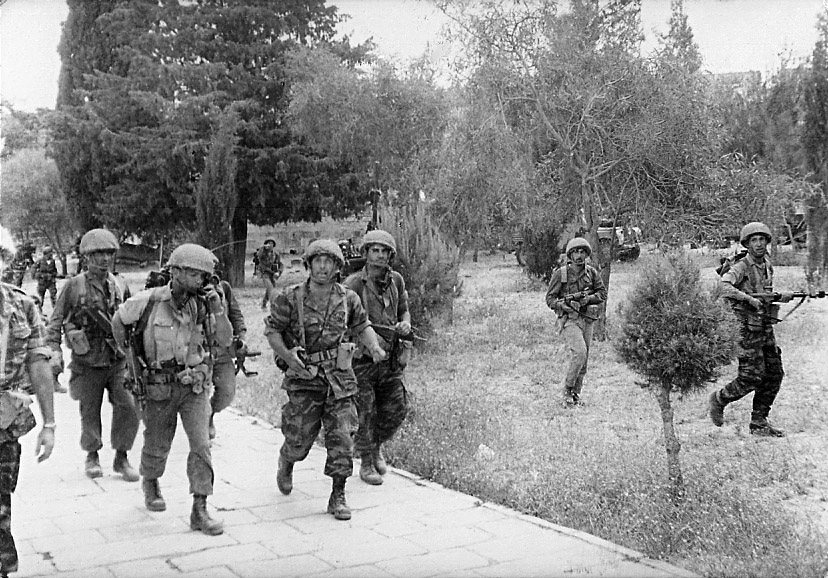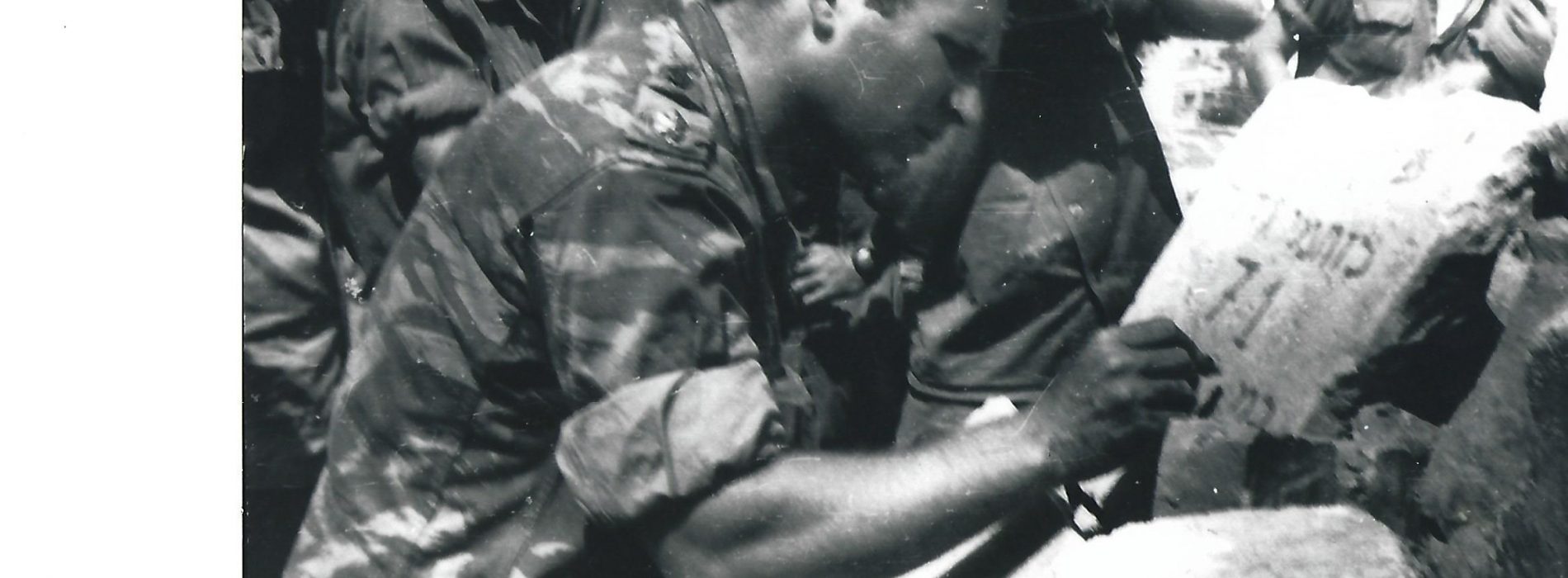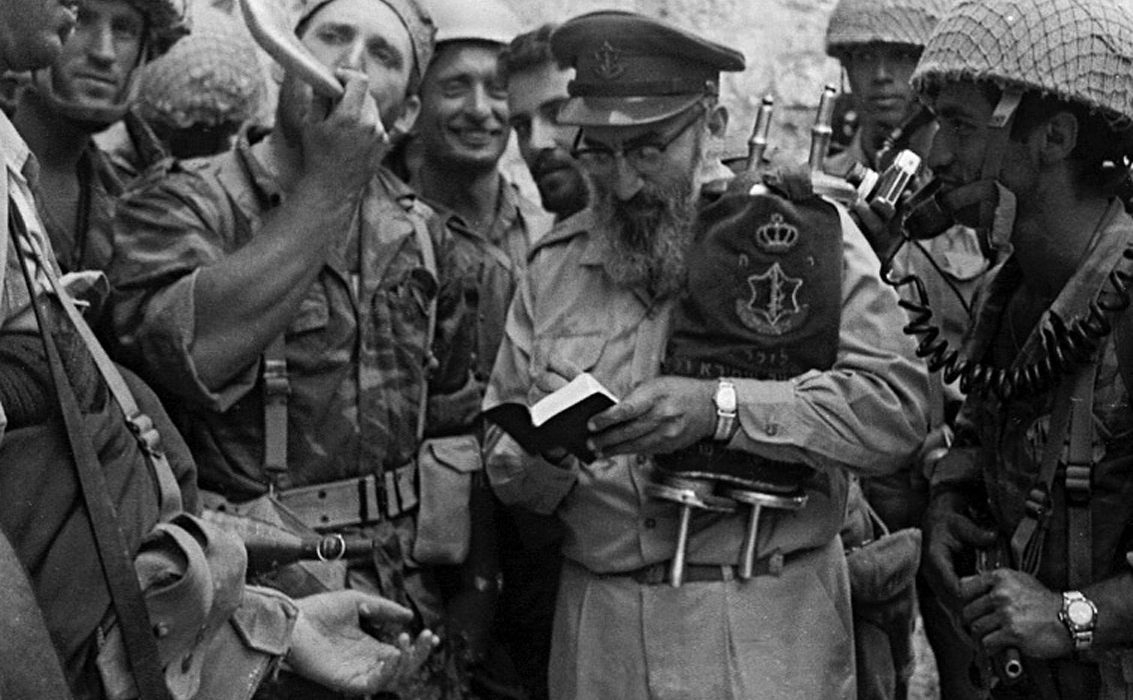- About Us
- Policy Center
- Learn
- Press Room
- Blog
- Get Involved
- Donate
- Donate to J Street Online
- Make a Gift in Someone’s Honor or Memory
- Make a Monthly Gift
- Tax-Deductible Donations
- Giving by mail
In 1990, Brigadier General (Ret.) Uzi Eilam was profiled by Ba’mahane, the IDF’s weekly magazine. Eilam was among the first Israeli soldiers to reach the Western Wall in the Six-Day War. Now, he is a public figure in Israeli politics and society who supports the Iran nuclear agreement and peace with the Palestinians. Here are some excerpts from his incredible story:
Who is Uzi Eilam?
“Uzi Eilam was the commander of one of the three paratrooper battalions that broke into Jerusalem under the command of Mota Gur, and provided Israel with one of its greatest victories. In some ways, Eilam’s battalion has been forgotten, its memory superseded by the mythic battle for Ammunition Hill. But on the night of June 5, as he was leading his battalion through the street of old Nahalat Shimon [a neighborhood in Jerusalem], Eilam wasn’t thinking about whether history would remember the battle …”

Memorializing fallen soldiers:
“When telling his story, Eilam uses present tense, as if the events are happening right now, as we stand here, as if he is living it all again … Every stone here can tell a story, on each step lay an injured or killed soldier, and even the memorial that was placed here has its own story. Right after the war, Uzi and a friend decided to erect a memorial at the exact point where the border was breached — but no one thought of the logistics behind it. ‘I saw there was no choice,’ says Eilam, ‘so I took my communications officer’s lipstick and turned a small rock that was there into a tombstone.’ That stone still stands there today alongside the official memorial. The battalion’s fighters routinely make pilgrimages to both …”

Blowing the shofar at the wall:
“Eilam enjoys shattering a myth that evolved around the capture of the Western Wall – the famous picture of Rabbi Goren blowing the shofar for the first time at the wall. The truth is different: “I was told over the radio that Rabbi Goren would be arriving with B Company and wishes to come down to the Wall. I sent someone to guide him, he arrived with a small pile of books and a shofar. He pulled out the shofar, tried to blow it but couldn’t. I told him, ‘Rabbi, let me try, I play the trumpet.’ I took the shofar from him and sounded a nice clean long sound. He got excited, pulled out one of the books and dedicated it: ‘Given to Lieutenant Colonel Uzi Eilam at the liberation of the Western Wall’. I told him: ‘Rabbi, I’m not a Lieutenant Colonel’ and he replied: ‘Don’t worry, you will become Lieutenant Colonel and even more than that.’
Even if Rabbi Goren would never admit that the first to blow the shofar at the Kotel was an amateur trumpet player, he would have to admit that his prophecy came true. Today, Brigadier General (Ret.) Uzi Eilam heads the Administration for the Development of Weapons and Technological Infrastructure in the IDF. Prior to that, he headed Israel’s Atomic Energy Commission …”

Eilam’s reflections on heroism:
“‘Contrary to popular belief, I did not feel an heroic sensation after the fighting,’ Eilam says today. ‘As soon as we left the Old City, I went to visit the bereaved parents. The price they paid hurts. The mistakes that we made hurt.’ Post-war investigations found numerous failures in the army’s conduct: ‘Anyway, after battles like these you don’t get a sensation of power,’ Eilam says. ‘There is a constant feeling of loss, you always walk around with hard questions in your stomach, what could you have done differently to save lives? 23 years later, these questions still keep me up at night …’”

50 years ago, he fought for Jerusalem. Today, Uzi Eilam is worried for Israel's future.